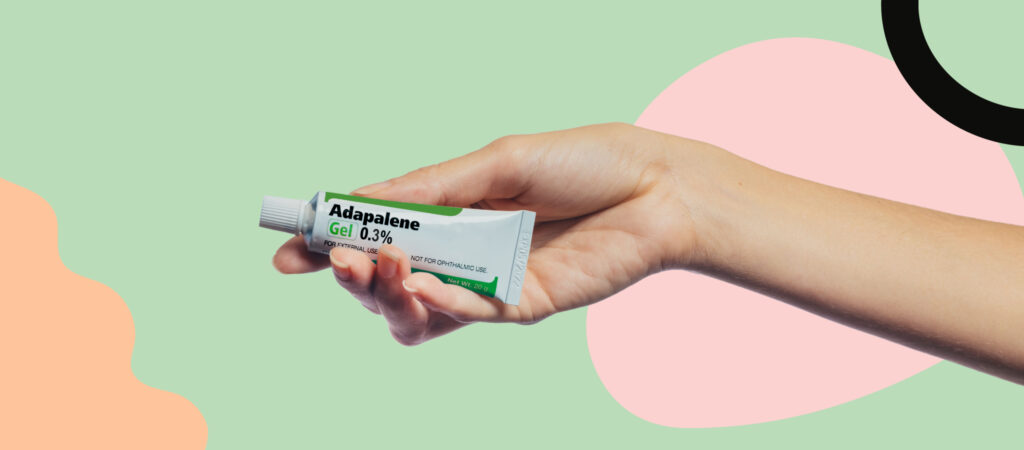Skincare Through the Ages
What to expect from your skin in your 20s, 30s, and 40s, and how your skincare routine should respond.
Your skin continually changes over the years, so don’t get stuck in a single skincare routine. How you care for your skin needs to evolve as you age.
Your skincare routine should be based on a number of factors including your skin type, your skin sensitivity, and any chronic conditions you may have like acne or rosacea — age is simply another factor to consider when choosing your products. Here’s how to create the right routine for your stage of life:
Skincare in Your Teens and 20s
In your teens and 20s, your skin is doing a lot of self-care. At those ages, the skin is more resistant to damage and quicker to heal. This is due, in no small part, to the abundance of collagen found in the skin during young adulthood. Collagen is a protein that causes the skin to appear brighter, tighter, and more plump than it would otherwise. Collagen production peaks in your late teens and early 20s, but levels of it in your skin remain high until your late 20s.
Nurx offers prescription treatment for acne, anti aging, melasma, rosacea, and eyelash growth.
But you probably already know that young skin is subject to some challenges. Your sebaceous glands — the small glands in your pores that produce the oily substance found on your skin — are at their most productive from your teens through your 20s, which can lead to oiliness and acne.
As a young person, your routine should be primarily focused on preventing sun damage (which won’t show up for years but will show up) and reducing acne if it’s an issue for you. Use a gentle cleanser and non-comedogenic moisturizer daily, and always wear a broad-spectrum sunscreen. The Nurx team recommends Differin cleanser, CeraVe moisturizing cream and either Alba Botanica mineral sunscreen or Solbar broad spectrum. If you experience persistent acne, you may require a prescription treatment plan to get it under control, and the Nurx medical team is here to help.
Skincare in Your 30s
Your late 20s and early 30s are when you’re most likely to first start noticing the impacts of aging on your skin. While skin at this age generally won’t show significant damage, it does start to lose some of its natural regenerative properties. Your skin cells will replace themselves more slowly, and your body starts to hit the brakes on collagen production.
When you start to transition into your 30s, consider adding products to your skincare routine that aid your skin in the regeneration process. Hyaluronic acid, for example, causes collagen to bind itself tightly to your skin, slowing down the degradation process. Retinoids, derivatives of Vitamin A, are also good options here, as they can also help the skin maintain healthy collagen levels. Nurx prescribes tretinoin and adapalene — both evidence-backed prescription retinoids — and can help you determine which one is right for you.
This doesn’t mean that you can start to ditch the routine you had before, though: damage prevention is more important than ever in your 30s. Sunscreen is always a must, and moisturizer takes on a new importance as your sebaceous glands start to slow down productivity.
Skincare in Your 40s and Beyond
Your 40s and beyond are when the big changes start to come to your skin: wrinkles, dark spots, and greater reduction of sebaceous gland activity. Some people will start to experience pigmentation discrepancies across areas of their skin, while those who spent large amounts of time in the sun may begin to see the effects of solar elastosis.
A dermatologist can recommend specific treatment regimen for each of these issues, but you can also start to incorporate more healing-focused products into your skincare routine as well. Again, prescription retinoids are the most effective anti-aging treatment that doesn’t involve a procedure in the dermatologist’s chair. Even if visible signs of sun damage are starting to appear, it’s not too late to prevent more, so keep using sunscreen every time you’re outdoors.
If you’d like a little extra guidance when it comes to taking care of your skin, we’re here to help. Get in contact with a member of our team today to learn more about which products belong in your routine.
This blog provides information about telemedicine, health and related subjects. The blog content and any linked materials herein are not intended to be, and should not be construed as a substitute for, medical or healthcare advice, diagnosis or treatment. Any reader or person with a medical concern should consult with an appropriately-licensed physician or other healthcare provider. This blog is provided purely for informational purposes. The views expressed herein are not sponsored by and do not represent the opinions of Nurx™.



